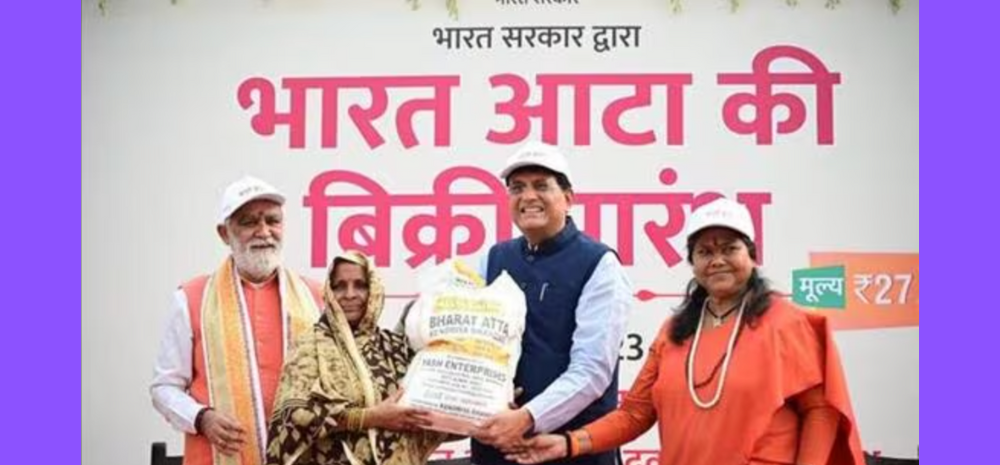On 6 November, Union Minister for Consumer Affairs, Food, and Public Distribution, Piyush Goyal, inaugurated the subsidized Bharat Atta sale.

Center Launched ‘Bharat Atta’
This Monday, the Center has launched the sale of wheat flour at a subsidized rate of Rs 27.50 per kilogramme under the brand ‘Bharat Atta’.
Bharat Atta is strategically priced at an affordable Rs. 27.50 per kilogram.
It will be made available through cooperative institutions like NAFED (National Agricultural Cooperative Marketing Federation of India Ltd.) and NCCF (National Cooperative Consumers Federation of India), among others.
It appears that considering the nearing vibrant Diwali festival, the central government unveiled a new wheat flour scheme called “Bharat Atta.”
On the launch, Union Minister for Consumer Affairs, Food and Public Distribution Piyush Goyal flagged off 100 mobile vans from Delhi’s Kartavya Path to begin selling the atta.
This latest scheme by the Center government aims to reduce food inflation and provide reasonably priced wheat flour to the poor and vulnerable sections of the society.
Prohibition On Export Of Wheat And Rice
Earlier, the Union government had signaled its intention to distribute three lakh tonnes of wheat to various cooperatives and Kendriya Bhandar in February.
They had also talked about the sale of wheat flour.
The government has also reduced the per kilogram price of Bharat Atta from Rs. 29.5 to Rs. 27.5 in an effort to combat the inflation.
In the meantime, the sale of subsidized Bharat Dal, another initiative by the Center is already in progress to mitigate inflation in the pulse market.
Food Secretary Sanjeev Chopra had foreseen an ample supply of wheat, rice, and sugar, ensuring stable prices during the festive season last month.
Considering the 3.5% annual inflation rate in wheat, Sanjeev Chopra affirmed the government’s readiness to enhance OMSS (Open Market Sale Scheme) sales from two lakh tonnes if the situation demands.
Meanwhile, the export of wheat and rice remains prohibited, being a part of the government’s strategy to guarantee sufficient availability and affordable access for consumers.
In another development, certain segments of traders and exporters have approached the government, seeking relaxation on various fronts, including export permissions.
But, the government seems to stand firm in its resolve to restrict wheat and rice exports, guided by the fundamental principle of catering to the needs of India’s vast population of 1.4 billion.











